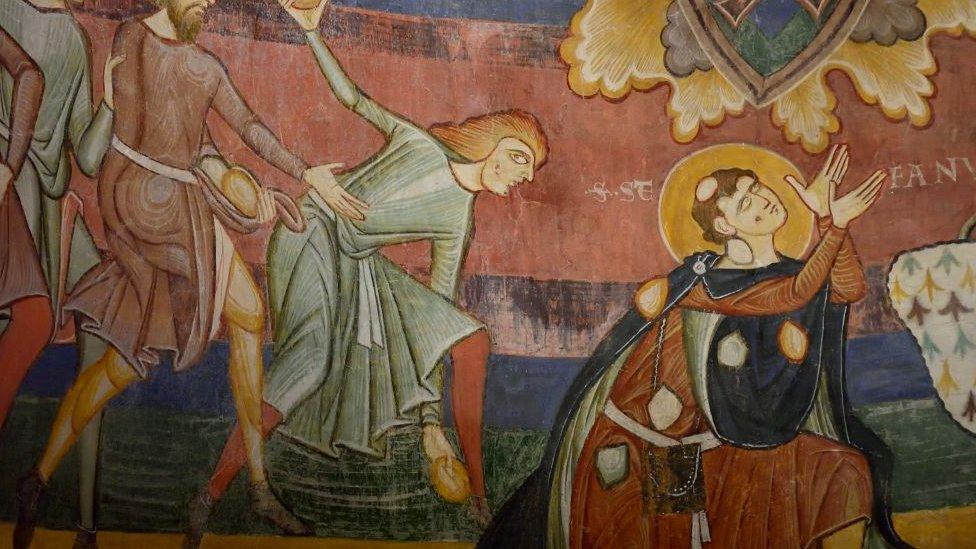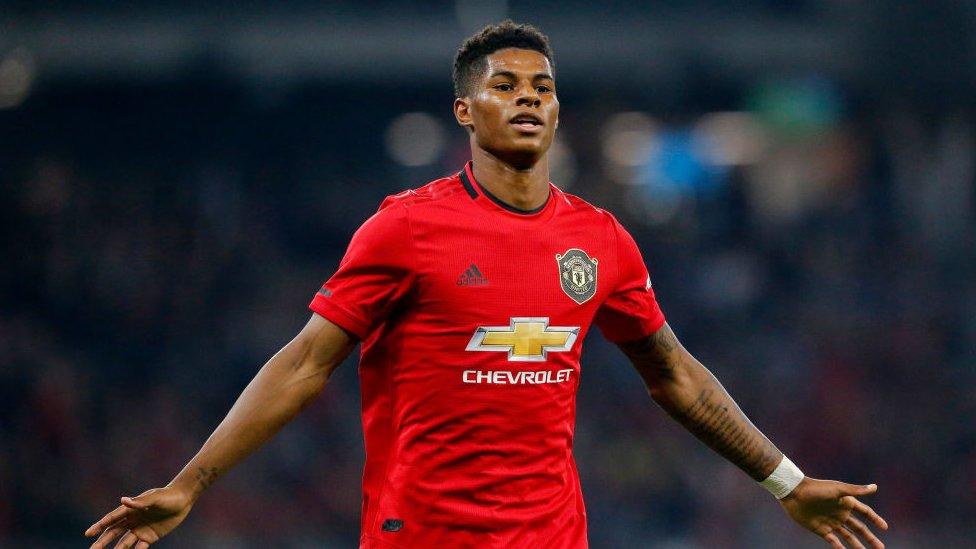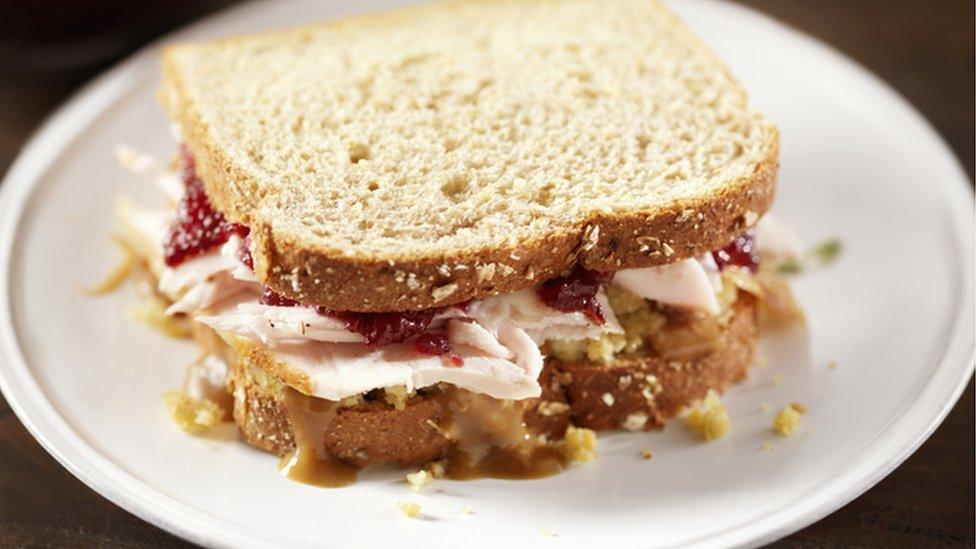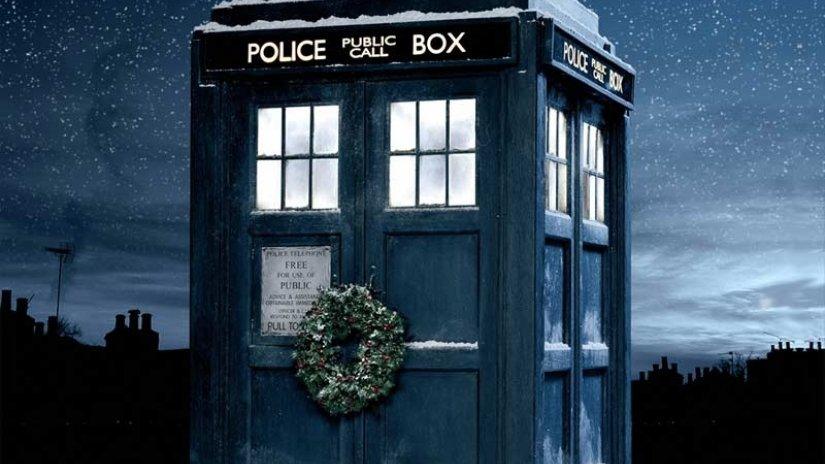Why is it called Boxing Day?
- Published

You can't have Christmas without Boxing Day, right?
But have you ever wondered how 26 December became better known as Boxing Day?
Well it has nothing to do with the sport of boxing and everything to do with the Victorians - like most traditions around Christmas.
Here's everything you need to know about the day after Christmas.

Mural of St Stephen inside the Benedictine Convent of St John, Switzerland
Boxing Day: How did it get its name?
The name comes from a time during Queen Victoria's reign when the rich used to box up gifts to give to the poor.
Boxing Day was traditionally a day off for servants - a day when they received a special Christmas box from their masters.
The servants would also go home on Boxing Day to give Christmas boxes to their families.
The 26 December also has religious connections and is celebrated as Saint Stephen's Day in Ireland and the Catalonia region of Spain.
In some European countries - such as Hungary, Germany, Poland and the Netherlands - Boxing Day is celebrated as a second Christmas Day.
Boxing Day boxes
Churches also played a part in the creation of Boxing Day. Through the year they would take money from churchgoers in the form of a collection and hand it out at Christmas.
Many of them stored the collection money in a box, which they opened on Christmas Day. The money was then handed out to the poor the next day - on Boxing Day.
Today, those boxes aren't as popular. However some people leave out extra money for people like paper boys and girls in the weeks before Christmas, and call it a Christmas box.

When is Boxing Day?
Boxing Day is the day after Christmas Day and falls on 26 December.
It's also a public bank holiday in the UK.
When 26 December is a Saturday, the Boxing Day bank holiday is moved to the next Monday.
If 26 December falls on a Sunday, then the holiday is the following Tuesday.
Boxing Day traditions
Boxing Day football matches

Marcus Rashford from Manchester United.
Christmas Day is now a football-free zone, but this wasn't always the case.
In the days before TV, there would be a full programme of matches on 25 December with fans popping on hats and gloves to watch football at grounds across the UK after eating.
But throughout the 1950s, attitudes towards playing sport on Christmas Day changed.
The final Christmas Day football match took place in 1957, leaving Boxing Day as the traditional festive fixture.
Turkey sandwiches on Boxing Day!!

For many people Boxing Day actually only means one thing - leftovers!
Let's face it, many people prepare way too much food for Christmas Day and end up eating it for the next week! Turkey curry, turkey pies and the famous turkey sandwich.
Yum, looking forward to it already - we'll skip the leftover sprouts though...
- Published15 December 2018

- Published15 November 2018

- Published29 December 2022

